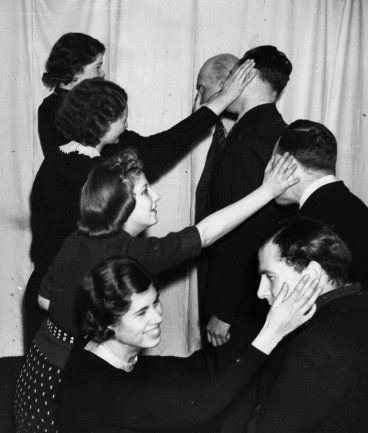
You cannot, no rather it is difficult to, ‘tell’ someone about the why’s and where-for’s of Facebook; Twitter etc. Stuck-on-a-train it appears as a normal characteristic to disguise / ease the boredom of the situation through series of quick text message perusal; Facebook and Twitter updates and exchanges. An imperative social practice, if only to avoid ‘checking-in’ with the more ‘formal’ work-based email.
‘
What you got there then love’ my carriage companion opposite queried?
Well what 'I had ‘there’' were an assortment of what I view as essential devices required for ‘on-the-move communication. These consisted my GI Android mobile phone; Toshiba notebook and iPod. Along with the requisite chargers, covers and carriers this meant that I occupied most (all) of the table ‘shared’ with my friend, who had begun to lay claim to his own territory via an ever-more insistent rustling of his Financial Times.
‘I do question my sanity sometimes’ I replied
‘but things so quickly become out-of-date and even a little socially strange if you’re disconnected for too long’. As an afterthought I added, helpfully, that ‘
The delay of going through a tunnel is too long’.
I’ve had similar conversations before. Many times. Usually with companions who, relaxed after work, make remarks about the impact of technology that is peppered along the lines of being ‘
over-worked’; ‘
constantly immersed’ and the aptly (if ironically phrased), in possession of ‘
communication blinkers’ to describe the nose-to-eye holding of a mobile device. It is only when you take the gaze of the outsider looking in when – being lifeaware, as I call it – such truths are exposed.
What follows is usally a short diary-esque version of daily events, up until the pertinent point when conversation is (most appropriately) interrupted by a friend’s Tweet or update to Flickr. In such situation it is probably not the best time to check-in with such activities, but as a case-study in note,
You (ok, I) find myself suitably skilled in the increasingly popular art of the social multitask. This requires both a mental and physical balancing act of various gadgets, with the ability to switch between the to-the-face and not-to-face (mediated) conversations.
Man-on-the-Train would like me to switch off the various apparatus I have with me. I suspect, not because I’ve now fully encroached on his part of the table, but because he looks affected by my joking observation of possessing a questionable sanity. Perhaps he’s taken this too literally and is worried that my tools are mere disguise for some kind of medicalised condition. A condition that relies heavily on moments when it appears as if I’m staring into space doing nothing with sudden interruptions of out-loud laughter as I observe when friend’s ‘do something’. This is contrasted with instances of frantic typing as I flit between the ebbs and flows of information – mobile to laptop; laptop to mobile; iPod plugged in. For the observer I appreciate that this can get a bit intense.
Like
Tanya Gold,
Going Back in Time, in last weeks Guardian, I too have experienced the
deliberately disconnected and gone cold turkey social media style. Not even a text. I managed this for a week. Most of which was taken up with flu, so I was asleep. This still counts, and is proof that I could survive such a task.
With the experiment now behind me, it is a rule that I follow such disconnection for all weekend’s – no email, no Tweets, no Facebook, no sms - Friday afternoon to Monday morning. Most recently such social seclusion has been met on a Friday afternoon with ever-earlier and increasing delight. Hahaha! I have the power to disconnect! No more work for me sings my inner voice. There are, however, frequent slip-ups. I have experienced the ‘
where are you?!’ accusory messages that accumulate on a Monday morning. Man-on-a-Train has in his eyes a similar accusation, one that is framed by his ‘
what do you think you’re doing?’ stare. Perhaps it’s time to implement a similar rule on all public
trainsport. NO SOCIAL MEDIA ALLOWED. There’s very limited or reliable wireless and too many tunnels anyway.
I am reminded, as soon as I reason with such thoughts, that Ryan Air is just one Airline in danger of infringing on one of the few moments it is ‘allowable’ to be disconnected and unresponsive. In-flight it is taken as a social given that you cannot/should not able to be gotten hold of. There are, however, talks of imposing on such sacred space with mobiles allowed and web access when up in the air. Suddenly 23hours to Australia seems an extended opportunity to Post, Poke and Update intensively as never before.
Back on the train I close my laptop, switch my mobile to ‘silent’ and remove my iPod appendage.
It turns out that Man-on-a-Train was not so disturbed after all, but had decided I looked a more interesting and intriguing insight for his journey than his FT. I should be flattered, but with over two hours of a from London King Cross to York to go, and with all tunnels now behind us, I can’t but help feeling a little insecure to missing out on the instances of others lives as and when they happen.
A quick pinch and I’m reminded that I might have been busy (doing nothing), but taking the opportunity to converse with a stranger is a unique and potentially stimulating moment.
And so conversation flows for the full two hours. He is a
'Financial Director' of a well known monetary institution who takes time to offer tactics and opinion on the current financial situation (don't buy a house; we're all f*ck*d). When I get up to leave at York he shakes my hand and presses into it his business card. By the time I'm at home ten minutes later and I’ve logged into Facebook he has already sent a Friend Request ''hi' from your train friend'. And so it seems he was hiding another (and all too familiar side of himself). In possession of two laptops, a Blackberry, iTouch and iPhone hidden beneath his FT.
What do you know, he is more lifeaware than myself.
























